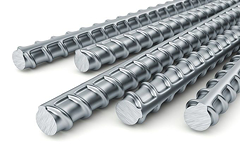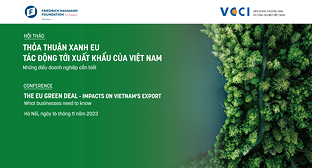GCC must take protectionist stance against cheap China steel: Unicoil President
09/10/2017 12:00

Despite being one of the largest consumers of steel in the region, the UAE’s own production has been suffering due to Chinese influence, according to a top industry executive.
With the region investing billions of dollars in construction, including marquee projects such as Dubai Expo 2020, the industry is projected to expand in the UAE at a compound annual growth rate (CAGR) of 8 per cent between now and 2020. But the outlook for domestic producers is more challenging.
“The steel industry has been going through challenges because of excessive production in China,” said Rayed Al Ajaji, President, Unicoil, speaking to Gulf News in an interview at the Middle East Steel Market event on Thursday.
This is equally true for the Gulf region, he added, especially since it maintains such an open and free trade position.
“The GCC area is open for imports, but there are no regulations or standards or inspections, nor is there a review of the customs,” said Al Ajaji.
He said this open market and free trade ideology had led to “steel industries that are suffering because of China’s trade practices”.
China has long been accused by the US and Europe of selling its surplus steel at lower prices on global markets, hurting producers elsewhere, in a practice known as dumping.
This oversupply has severely harmed steel prices, with the commodity’s value nearly halving between 2012 and 2016.
“Saudi Arabia is having the same challenges as the UAE,” the president continued, adding: “With Vision 2030, the kingdom is looking to diversify its economy away from oil, and that includes a shift to steel.”
But, Al Ajaji said, without a unified effort from the Gulf Cooperation Council (GCC) member states, the steel industries throughout the region would continue to be hurt.
China’s actions
The steel industries in Saudi Arabia and the UAE are going through a difficult phase at the moment, and according to Al Ajaji, if they “don’t act soon, and we’re already seeing this happen, many lines will be closed. And jobs will be lost.”
Two steel production lines in the UAE and Saudi have already closed as a result of China’s actions, according to Al Ajaji.
“The UAE and Saudi Arabia are the only two countries that are really facing challenges from the Far East’s dumping behaviour. Excessive large volumes of steel are doing damage, plus they are selling at low prices, and deviating from international practices,” he added.
In response to the current market conditions, the senior executive makes two recommendations.
Firstly, he says, the GCC is outdated in terms of its protectionist measures, or the policies that defend it against such trade practices as the ones it is currently witnessing from China.
The European Union recently introduced anti-dumping measures against China, and Al Ajaji believes the GCC must do the same: “We hope that officials move to protect these industries in the region.”
Quick action will be essential, he added, saying that he hopes “that there is a move towards faster action because we’re very late”.
Overall, however, the president of one of the region’s largest steel producers believes that there is reason to be hopeful.
“Recently, within the last year, we’ve started to see a greater understanding of the challenges. We’re optimistic about the growth of the region. The steel industry has a lot to offer,” he concluded.
Source: Gulfnews
Các tin khác
- Businesses capitalize on recovery momentum to explore market expansion (17/04/2024)
- Canada is second largest consumer of Vietnamese pangasius in CPTPP bloc (17/04/2024)
- India’s tariff removal on several US products benefiting farmers: Katherine Tai (17/04/2024)
- Thailand Contemplates Protective Tariffs on Chinese Imports Amidst Surging Trade Deficit (17/04/2024)
- Vietnam becomes largest banana exporter to Chinese market (17/04/2024)
 Home
Home
 About Us
About Us




















